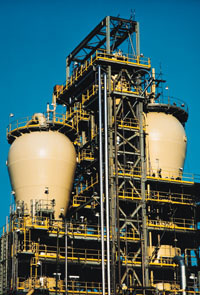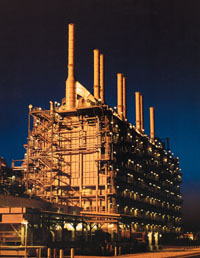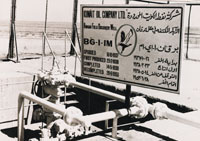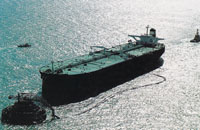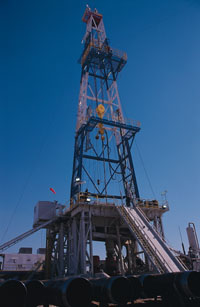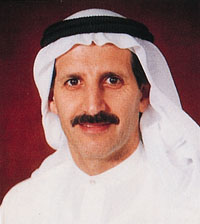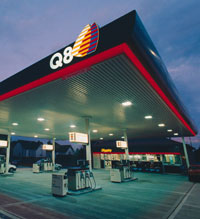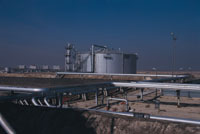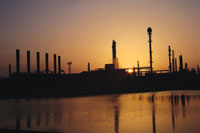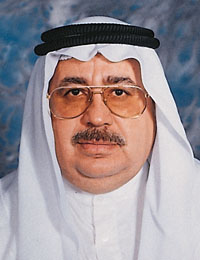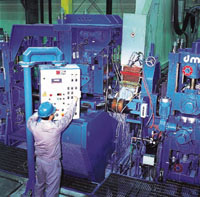
 Dr Al Sabih ... no policy change
Dr Al Sabih ... no policy change
ITS A period of considerable change in Kuwait, with a new cabinet and a major upstream oil plan now making stuttering progress.
The recent resignation of Oil Minister Shaikh Saud Nasser Al Sabah was seen by some observers as casting a shadow of doubt over the country's future oil policy, in particular the politically sensitive plan to invite foreign oil majors to develop its northern oilfields.
An ardent supporter of the plan, which envisages up to $7 billion in technological investments in the fields, Shaikh Saud was renowned as a key driving force behind the plan.
But new Oil Minister Dr Adel Khaled Al Sabih has made his position clear, vowing to push ahead with the process.
Despite some opposition to the plan in parliament on constitutional grounds, the technical aspects of the initiative appear to be progressing, with Royal Dutch/Shell and Exxon Mobil having recently collected confidential information about northern oilfields from data rooms, with other prequalified companies, including Chevron, Texaco, BP Amoco, Conoco, TotalFinaElf and Lasmo, expected to follow suit over the next few weeks.
On the international stage, Kuwait, as a key member of Opec, is an influential voice on a number of issues, and is set to continue that way.
Shaikh Saud led the call from producing nations for consuming nations to address the issue of taxation of petroleum products, believing that Opec members had worked tirelessly to stabilise persistent high oil prices.
The call came amid widespread protests in Europe over high fuel prices, with Shaikh Saud saying that, with taxes, consuming governments were making ''at least three times what the producers get per barrel.''
Kuwait has been instrumental in producers' efforts to stabilise oil prices.
As of February 1, Kuwait's oil production quota was 2.021 million barrels per day (bpd), down from 2.141 million bpd, and part of a wider Opec cut of 1.5 million bpd.
Kuwait's current production capacity stands at 2.6 million bpd, which will increase to three million bpd by 2005 once the northern oilfields plan comes onstream. The state's oil reserves stand at approximately 96.5 billion barrels.
Kuwait is also spending more on upstream projects than any other Gulf state to boost production capacity. Last month, Kuwait Oil Company (KOC) inaugurated the first of two new gathering centres in the West of Kuwait in a joint project with China National Petroleum Company. The Umm Gudair gathering centre will have a nameplate capacity of 190,000 bpd of crude oil once fully commissioned while the second, construction of which is expected to be finished next month, will boost oil production capacity by another 220,000 bpd in the Minagish field.
Despite political rumblings over the northern oilfields project, Kuwait's oil industry is in sound shape. Higher oil prices have catapulted revenue expectations for the government, and is expecting to earn KD3.26 billion ($10.7 billion) from oil sales for the 2001-2002 fiscal year beginning on April 1.
The estimate is based on a conservative $15 per barrel, compared with $13 per barrel for the current financial year.
The state also plans to spend KD2.3 billion ($7.6 billion) in the next fiscal year on capital projects in the public oil sector, which is good news for the international contracting community as Kuwait aims to modernise its oil and gas producing infrastructure.
KOC will be allocated 77 per cent of this total, Kuwait National Petroleum Company (KNPC) will receive 14.4 per cent, and Petrochemical Industries Company (PIC) four per cent. Other Kuwait Petroleum Corporation (KPC) affiliates will receive the remainder of the allocations.
KNPC, which runs the country's three refineries, is now facing the task of upgrading the Mina Al Ahmadi plant following an explosion last year.
US-based Foster Wheeler has been selected as project management consultant to oversee the work, which will focus on building two new 18,000 bpd naphtha catalytic reformer units, two new benzene processors and associated facilities.
The cost of rebuilding the plant has been estimated at approximately $300 million. Fluor Daniel and SK Corporation will undertake the repair work.
State-owned KPC, one of the world's 10 largest oil firms, runs the country's domestic oil sector in addition to broad downstream operations abroad, mainly in Europe.
Its profits are mainly based on the sale of crude oil and refined products, including output from three domestic refineries.
The company is also active in looking at opportunities for joint ventures, both at home and abroad, according to Nader Sultan, KPC deputy chairman and CEO.
KPC, said Sultan, had witnessed major technological and structural changes in the oil and gas industry. In the last 10 years, technology had revolutionised the discovery, development and extraction of oil.
For KPC, this means facing the pressures, as a state oil company, of productivity and efficiency.
This year is expected to be a year of change for KPC, according to Sultan. After approximately three years of extensive internal studies with international consultants, KPC is set to present restructuring options to the Supreme Petroleum Council, the highest oil body in the country, with partial privatisation one of several options.
''We now have to look at the appropriate structures,'' said Sultan. ''What is our core business and what do we privatise or sell?''
Reforms would also include the Central Tenders Committee, which obliges KPC to put any contract worth more than $750,000 through an elaborate tendering process.
''We are having a dialogue with them, to lower procurement costs and get faster delivery,'' said Sultan.
KPC remains at the mercy of volatile oil markets, which create havoc in the company's ability to forecast its budget and revenues to the state. The situation has also created uncertainty in the forward planning of the production capacity required. As a result, the emphasis is now on KPC diversifying its revenue streams.
Kuwait is also looking to diversity its sources of fuel for industrialisation. Less endowed than its neighbours with gas, it is actively seeking a supply of the resource to feed growing domestic and industrial needs which, according to some observers, could reach critical levels later this decade. Utilities in the country currently use some 500,000 bpd of crude oil, while the government last year approved a $2.5 billion plan to build two new power plants in the country, one of which will be gas-fired.
KPC signed a memorandum of understanding with Qatar Petroleum (formerly Qatar General Petroleum Corporation) and ExxonMobil last year for Qatar to supply gas from its giant North Field Enhanced Gas Utilisation project, and is now waiting for a sale price offer following conclusion of all technical studies.
Kuwait is also looking at Iran as a potential source of gas, its geographical proximity seen as giving it a competitive edge.
At home, promising gas finds have been made in the northern Raudhatain and Sabriyah fields, while the disputed offshore Al Dorra field also remains a focus.
Some of the proposed gas supplies will be used as feedstock for petrochemical major Equate, which is now planning to more than double output by 2004.
The so-called Equate II project will produce polyethylene, ethylene glycol, polypropylene and aromatics such as benzene, styrene and toluene.
Dr Al Sabih inherits an industry in a state of flux, but one which carries the potential of a very dynamic, efficient future.



















































































